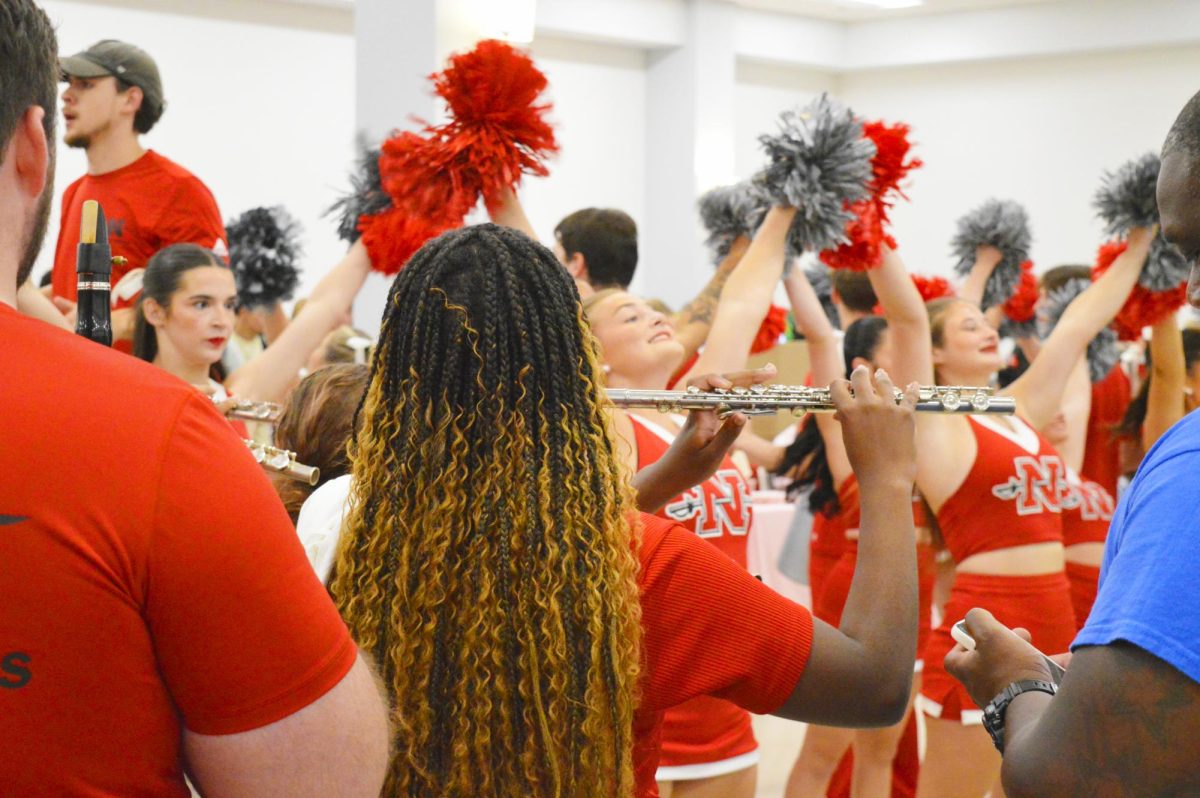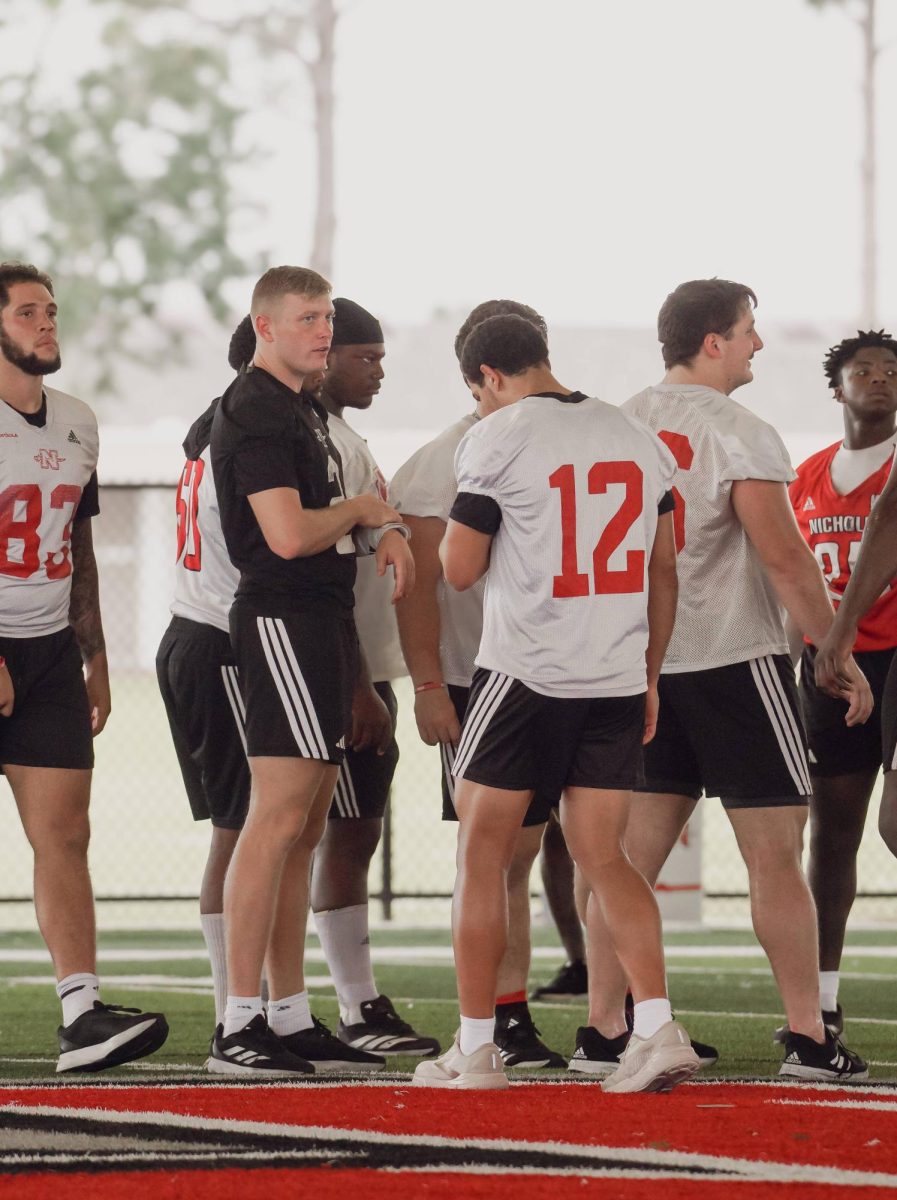A recent Nicholls Worth survey conducted on campus gives a clear indication as to what students think about tuition, financial aid and their financial skills.The survey shows that 83 percent of the students surveyed feel that their college degree will be worth the price of tuition.
The average tuition per semester for a full-time under graduate student at Nicholls who is a resident is $1,496.45. This fee does not differ much from some other universities in Louisiana.
Tuition at University of Louisiana-Lafayette per semester, based on 12 credit hours is around $1,469.75. Grambling State University’s tuition per semester is around $1,591.
The College Board Association states that, “The price of college may cause concern among families, but the costs associated with not going to college are likely to be much greater.”
The report by the CBA shows that the median annual earnings for full-time workers with bachelor’s degrees are about 60 percent higher than those with high school diplomas.
“A college degree, with it’s wide range of diverse topics combined with specialization in a particular area, gives people numerous possibilities to excel in life; the more rigorous academic exposure (of a college degree) enables people to utilize good decision making skills and provides a richer knowledge in generalized areas as opposed to a vague, non-detailed high school degree,” Derek Stevens, psychology junior from Donaldsonville, said.
According to the 2002 Louisiana State Occupational Employment and Wage estimates, data indicates that having a college degree does increase a person’s wage earnings.
For example, in the state of Louisiana, a pharmacist’s average hourly salary is $33.30. However, a pharmacy technician and pharmacy aide earn an average hourly salary of only $9.71 and $7.85, respectively.
Another example showing the benefits of a college degree is the average hourly salary of $21.72 for a registered nurse compared to $7.10 average hourly salary earned by a nursing aide or orderly.
As the value of higher education increases, so does the cost of tuition. The National Education Association still believes the cost of a college degree is worth the price, saying, “The financial benefits of education accrue to students in the form of higher salaries and better jobs … society also reaps reward from higher education, including a more skilled workforce and a more knowledgeable citizenry.”
The survey also asked if students felt there was enough financial aid available to those who want to attend college. Forty-four percent thought there was enough help available, while 56 percent felt there was not.
One student believes that there is too much financial aid being offered. “I am opposed to affirmative action in financial aid,” Erin Eymard, history junior from Cut Off, said. “If a Caucasian scholarship fund was created, it would cause a big stir.”
Financial aid is available at Nicholls through grants, scholarships, loans and employment. The university offers scholarships and employment, while the federal and state government offers loans and grants. Individuals and organizations also provide other scholarships.
The CBA, which assists students in the transition to higher education, reports that student aid has increased. They said it “reached more than $105 billion in 2002-2003, an increase of 15 percent over the preceding year or 12 percent after adjusting for inflation.”
They also reported that the Pell Grant funding, “considered the cornerstone of aid for low-income students,” rose by 15 percent. The College Board also reports that while most federal grant aid is need-based, they are not targeted towards low-income students.
Students are encouraged to apply for financial aid because some students who think that they are ineligible for assistance might qualify.
Another question on the survey asked whether students thought colleges taught enough personal finance skills to students. Eighty-six percent believe they do not, while 14 percent think colleges teach enough financial skills. One person surveyed wrote that they do not believe it is the college’s responsibility to teach financial skills to students, and if it were, it should perhaps be done in freshman studies courses.
Susan Gilbert, instructor of a freshman studies course, says that they do have a chapter in the book about financial skills.
One of the University Counseling Center’s E-Mental Health newsletters gives tips on handling your finances. It tells you to record all purchases, to share your expenses with a roommate and to avoid the use of credit cards.
The survey questioned whether students were taught basic financial skills by their parents before they started college. Sixty-six percent said their parents had taught them basic skills, while 34 percent felt they had not. The survey also asked whether students had to get a job to help pay their bills; 80 percent said yes, while 20 percent said no.








